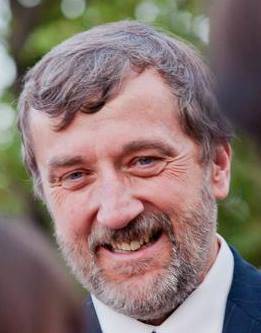By Dan Wiese
There is a myth that says, “God helps those who help themselves.” Sometimes it is even quoted as “Somewhere the Bible says …” However, a good Scriptural study often teaches us the exact opposite. God promised Abraham — earlier known as Abram — that God would bless Abraham with a son that would bring him many, many descendants who would become God’s Chosen People. The problem was that when God made that promise, Abraham and is wife Sarah were childless and well beyond the age of bearing children. The promise seemed unattainable. But Abraham was a man of ingenuity so he could help God by helping himself to his own solutions. First, he tried to adopt his servant to become his son and his sole heir to receive the promise of God. God said no. Then, Abraham and Sarah cooked up a scheme that Abraham would take Sarah’s maidservant as a wife and she could bear him a son. They did, but God said, “No, that is not the solution.” Consequently, Abraham had to live with two wives that didn’t get along.
If it were true in Scripture that God helps those who help themselves, Abraham would have been a great example of helping himself and helping God fulfill his promise. However, helping himself without trusting God for his promise led to a lot of unhappy turmoil in his life.
[A prayer for us going through the pandemic]
Too often we follow this philosophy God helps those who help themselves by doing for ourselves with the expectation that God will bless our efforts, even if they are done without his approval or contrary to his plan. Here is a summary of an event in Israel’s history from I Samuel 15. Israel’s first king, King Saul, discovered that when God commanded him, as he was going into battle, to destroy everything; don’t spare anything; don’t take any plunder, Saul had other ideas. King Saul defeated the enemy, but thinking it over, decided to take some of the best plunder of cows, sheep and other valuable items. Then Samuel, God’s prophet, asked Saul, why did you not do as God told you? Saul replied, “I have carried out the lord’s instructions.” But Samuel replied, “What then is this bleating of sheep in my ears? What is this lowing of cattle that I hear?” Saul answered, “The soldiers brought them from the Amalekites; they spared the best of the sheep and cattle to sacrifice to the lord your God, but we totally destroyed the rest.”
Saul excused himself, trying to justify his disobedience by saying, “I saved the best for a sacrifice to God. God’s reply to Saul’s application of “God helps those who help themselves” with a question, “Does the lord delight in burnt offerings and sacrifices as much as in obeying the voice of the lord?” The consequences were severe as God rejected King Saul because he refused to submit to God, trust him and obey him. Saul continued to turn his heart away from trusting God to only doing what helped himself.
That is the problem with this misguided saying. When we believe God helps those who help themselves, our focus is not on God. Our trust is not on God but on ourselves doing what we think is best for us, even if it is contrary to what God has for us. Proverbs says 14:12 says, “There is a way that seems right to a man, but in the end it leads to death.” Another scripture, Jeremiah 17:9, says, “The heart is deceitful above all things and beyond cure. Who can understand it?”
From these scriptures, this myth of helping ourselves or doing what we think is best, often feeds into our own self-sufficiency. Self-sufficiency leads to trust less and less on God and more and more on self. Trusting God leads to God-efficiency, understanding that God is all-sufficient, rather than leaning more and more on self-sufficiency.
Such is the case of Gideon, in Judges 7:2. He was farmer called upon by God to lead an army against their enemies that consisted of hundreds of thousands of soldiers ready to attack the Israelites. God called Gideon to gather an army. Then God instructed him to downsize the army until it was only 300 soldiers. God said to Gideon, “You have too many men for me to deliver Midian into their hands. In order that Israel may not boast against me that her own strength has saved her…” Then, God told Gideon to downsize the army and send most of them home until they were down to 300. Why such a ridiculously small army to go up against hundreds of thousands? So, Israel may not boast against God that her own strength saved her. God was teaching them that they could trust in his sufficiency.
God helps us because we cannot help ourselves.
When we truly rely on God, we are not relying on our own self-sufficiency. As says Proverbs 3:5-6, “Trust the lord with all your heart, lean not on your own understanding. In all your ways acknowledge him and he will direct your paths.”
• Daniel R. Wiese is the pastor for Church of the Nazarene. “Living Growing” is a weekly column written by different authors and submitted by local clergy and spiritual leaders.

